#faunalytics
Explore tagged Tumblr posts
Text
6 notes
·
View notes
Text
A lot of people won't like hearing this, but the meat industry is terrible for this planet.
Last weekend, Elon Musk posted one of his more outrageously false tweets to date: “Important to note that what happens on Earth’s surface (eg farming) has no meaningful impact on climate change.” Musk was, as he has been from time to time, wrong. As climate experts rushed to emphasize, farming actually accounts for around a quarter of global greenhouse gas emissions.
Musk spewing disinformation is not exactly news. But even by his standards, his contention regarding livestock agriculture and climate was on a par with George Santos's fantasies.
The tens of billions of chickens, pigs, cows, and other animals we raise and slaughter for food annually account for around 15 percent of global greenhouse gas emissions, primarily from cow burps, animal manure, and the fertilizer used to grow the corn and soy they eat. More than one-third of the Earth’s habitable land is used for animal farming — much of it cleared for cattle grazing and growing all thatcorn and soy — making animal agriculture the leading cause of deforestation and biodiversity loss globally. Deforestation causes emissions itself, but it also represents a missed opportunity to sequester carbon. If that land were “rewilded,” or retired as farmland, it would act as a carbon sink, sucking massive amounts of climate-warming carbon out of the atmosphere. But we keep clearing more and more forestland, especially in the Amazon rainforest and elsewhere in the tropics, mostly for beef, pork, and poultry.
Yep, livestock grazing accounts for almost a third of our usable land.

The message regarding livestock agriculture just isn't getting out.
Madre Brava also conducted a media analysis that found that between 2020 and 2022, less than 0.5 percent of stories about climate change by leading news outlets in the US, the United Kingdom, and Europe mentioned meat or livestock. Last month, two groups that work on issues related to animal agriculture — Sentient Media and Faunalytics — published an analysis with similar findings. The organizations looked at the 100 most recent climate change stories from each of the top 10 US media outlets, including the New York Times, the Washington Post, the Wall Street Journal, and CNN, and found that 7 percent mentioned animal agriculture. Of that 7 percent, most only discussed how climate change-fueled weather events like droughts, floods, and heatwaves impact animal farmers. “Across the 1,000 articles we examined, only a handful of stories reported in depth on the connection between consuming animal products and climate change,” the researchers wrote. The media is an easy target, and some criticism is deserved — it’s a disservice to readers to largely ignore a leading cause of the climate crisis. Part of the problem is that the media, like everyone else, operates in an information environment in which the meat lobby downplays and in some cases suppresses the full extent to which burgers, ribs, and chicken nuggets pollute the planet. But journalists could be doing more to cut through the noise.
We need to speak up more ourselves. Entrenched interests and powerful lobbying groups are not shy about promoting livestock businesses which harm the planet.
The National Cattlemen’s Beef Association, the industry’s leading lobby group, runs a “climate messaging machine,” food journalist Joe Fassler recently wrote in the Guardian, that trains influencers to confuse the public and downplay beef’s emissions. The list goes on. Last year, leaked documents showed that delegates from Brazil and Argentina successfully lobbied the United Nations’ Intergovernmental Panel on Climate Change to remove any mention of meat’s negative impact on the environment, or recommendations for people in rich countries to reduce their meat consumption, in its recent report. Meat giant Tyson Foods spends a much bigger share of its revenue than ExxonMobil lobbying Congress to stop climate policy. Outside the animal rights movement, there aren’t many voices pushing back against these narratives. The US environmental movement has largely shied away from campaigning to reduce meat and dairy production, with some leaders outright rejecting the notion that we need to eat fewer animals. Policymakers largely avoid the issue too.
We have a lot of catching up to do – and fast.
“The food conversation is probably about 20 years behind the energy conversation, and it is catching up, but it’s not visceral to people in the way energy is — that they immediately know energy is a climate issue,” said Michael Grunwald, a food and agriculture columnist for Canary Media, in the Sentient Media panel discussion. But time is in short supply. Experts say that if we don’t change what we eat — especially reducing beef and dairy — we can’t meet the Paris climate agreement of limiting global warming to 2 degrees Celsius or less.
In addition to publicizing the issue, we can lead by example. Eating less meat or even no meat lets people know we're serious about what we're saying.
There will be pushback from the industry and also from populist blowhards. We can imagine at least one saying something like: "Hunter Biden wants to steal your double cheeseburger. SAD!"
But no discussion of carbon emissions is complete without talk of livestock agriculture and its effects.
#the environment#climate change#carbon emissions#meat#livestock agriculture#livestock grazing#deforestation#elon musk#disinformation#rewilding#vegetarian#vegan
90 notes
·
View notes
Text
the misinformation about the leather industry as being environmentally friendly on this website borders on climate change denial, fyi



while we're at it: article on wool, another article on wool & article on fur
wear leather if you want, buy secondhand leather if you want, i genuinely don't care what other individuals do and you do not need to justify your choices to me. there is a lot of secondhand leather and wool and fur in thrift shops that will also last you a lifetime and that may be wasted on a landfill if you don't buy it. and we need a systemic change that is extremely hard to make happen under capitalism.
but please don't make or reblog posts claiming animal products are point-blank more environmentally friendly when that is simply not true. i am not telling you what to do but misinformation is dangerous and makes me angry.
#'factory farming and global meat industry bad' is environmentalism 101#and anyone wholly uncritical of the meat industry under capitalism can not be trusted as a source on green matters
7 notes
·
View notes
Text












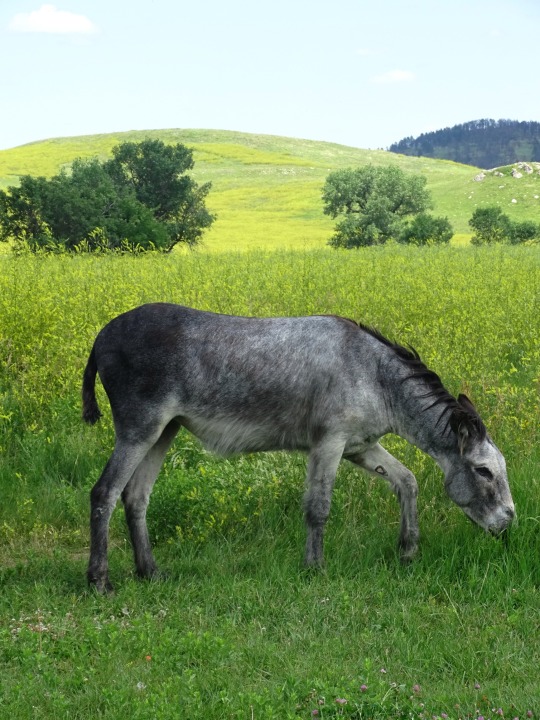






World Farm Animals Day
Created in memory of Gandhi, who advocated respecting all animals, National Farm Animal Day is about the crucial and often mistreated farm creatures.
Farm animals are delightfully cute, especially baby farm animals with their squeaks and squeals, running and playing. Even more than that, farm animals also play an important role in modern society. Take some time to appreciate them this World Farm Animals Day!
History of National World Farm Animals Day
Established in memory of Mahatma Gandhi, who believed in treating all living beings with respect, World Farm Animals Day was founded to highlight the poor conditions suffered by some farm animals, and promote awareness in the hope something may be done to improve the lives of these innocent creatures. The first World Farm Animals Day was celebrated in 1983 as part of an international movement for the rights of farm animals.
Sometimes also called the World Day for Farmed Animals (WDFA), this day aims to raise awareness for and commemorate the 65 billion land animals who are raised for food every year. Since most people believe that animals should not be harmed unnecessarily, this day seeks to bring together those who are passionate about farm animal welfare and working to make changes!
How to Celebrate World Farm Animals Day
Show some love and attention to these often overlooked creatures by celebrating World Farm Animals Day. Get involved with the day in a variety of creative ways, including some of these ideas:
Celebrate World Farm Animals Day with Children
Although World Farm Animals Day has an important, and somewhat sad, origin in the sense that it was created to raise awareness of suffering, it can be celebrated in different ways, particularly with children.
Taking children for a visit to a farm is a great way to teach them about farm animals, and it may also be a good chance to instill in them the message of treating animals with respect. Teachers might want to take an opportunity on World Farm Animals Day to create lessons around the different farm animals, how they contribute and why they are important in the world today. From preschoolers to older children, this day offers a perfect opportunity to grow a generation of responsible humans who treat all creatures well!
Change Some Eating Habits
World Farm Animals Day is actually a great day for a person to make a commitment to try to incorporate fewer animal products in their diet. Perhaps it’s not realistic to immediately become a vegan and cut out all animal products. However, it might be a good time to commit to taking one day a week for the family to prepare meals without meat. Or perhaps this is a good time to make the switch from dairy milk (which many humans really don’t process well anyway!) to drinking plant-based milk such as oat, soy, almond or another alternative.
In addition, taking care about where animal products are sourced from can make a huge difference. For instance, commit to purchasing cage-free eggs, farm raised chickens or responsibly sourced seafood.
Support an Animal Charity
Another great way to celebrate is by donating to an animal protection charity that works to promote the welfare of animals, including those on farms. Take a look at some of these non-profit organizations that are dedicated to animals, and perhaps look into making a financial gift or even volunteering throughout the year:
Farm Sanctuary. This charity offers many ways for folks to get involved, including becoming members of the Friends of Hilda Club, named after the first rescue animal to benefit from Farm Sanctuary.
Faunalytics. Don’t let saying the name be intimidating, because this organization works to collect and share data, research and knowledge that is vital in understanding how to better care for farm animals and limit industrial animal farming.
Human Farming Association. This campaign against factory farming aims to stand up to big business, speaking on behalf of the animals who cannot speak for themselves.
Source
#Stewart#World Farm Animals Day#WorldDayForFarmedAnimals#2 October#goat#sheep#Spain#Sweden#original photography#travel#vacation#flora#fauna#Tyresta National Park#River Västerdalälven#Ystad#cow#cattle#meadow#LUGA#Schweiz#Switzerland#donkey#begging burros#USA#Custer State Park#Kings Landing Historical Settlement#Canada#horse#pig
2 notes
·
View notes
Text
https://faunalytics.org/global-animal-slaughter-statistics-and-charts/#:~:text=In%20total%2C%20the%20number%20of,population%20increased%20by%20about%201.7%25.
https://ourworldindata.org/rise-of-aquacult
It really isn’t, If your born into human society 20,000 years ago you were probably a human that lived for at-least a couple years in a clean environment while well cared for by a loving family. If you were born into human society today you are probably a chicken or fish that lives for a couple weeks in a cramped overcrowded dirty and disease ridden container before dying or being killed as Chattel.
On average, in general, today is still probably the single best time in history to be alive
Oh my god is that such a low fucking bar you have no idea everything is so fucking awful everywhere
1K notes
·
View notes
Text
In this resource, updated with the latest available data, we aggregate and explore trends in animal slaughter around the world using UN FAO data tracked since 1960.
0 notes
Text
0 notes
Text
By Ali Francis
In 2014 Veronica Sent started dreaming about meat—every night. She’d turn the lights off, drift away, and then boom: “I was eating massive tins of tuna and hot dogs,” she says. And not just any hot dogs. These were würstels, blush pink German-style sausages typically made from pork and beef and cased in sheep’s intestine.
This was unusual. The 36-year-old dog groomer, who grew up in Venice, Italy, but now lives in San Francisco, had been a strict vegetarian for about 15 years before the hot dogs started haunting her dreams. She’d stopped eating meat for animal welfare reasons, but it seemed as if her subconscious self was “screaming” at her. So Sent reluctantly decided to reintroduce some meat and fish into her diet.
Sent’s decision to eat meat after going so long without it might seem like an unrealistically hard pivot. But many like her—long-term vegetarians in the US—do eventually eat meat again. At just 5% by some estimates, plant-based eaters are already the vast minority in this country. In 2014 Faunalytics (formerly Humane Research Council), an organization that conducts research to support animal welfare, discovered that 84% of the 11,000 vegans and vegetarians in their study pretty quickly reverted back to their omnivorous ways. One third of participants lasted less than three months, and over half had started eating meat again within the first year.
Unlike those in the 2014 study, all of the 25 former vegetarians I interviewed had followed the diet for at least five years; these were no casual flings. Most stopped eating meat with intentions similar to Sent’s: They wanted to protest the ways animals were being raised and killed in the US and ease their impacts on the environment. Still, despite their motivations, they eventually ditched vegetarianism for various reasons they couldn’t anticipate—reasons that had as much to do with their communities and culture as they did with typically cited nutritional needs.
It’s not as though the ethical concerns that first drive people to vegetarianism magically disappear when they decide, for whatever reason, to eat meat again. This kind of dissonance between our values and our actions can be super uncomfortable, and most of the people I spoke to often feel guilty about eating animals and polluting the environment, or struggle with the ick factor when they have to handle or cook meat. “When I stopped being vegetarian, I was very upset with myself and felt that I was betraying my values and the animals,” says Sent. “I spent at least a year eating meat, fish, and eggs in secret.”
My own relationship with meat is on and off, as if it’s a toxic ex I struggle to block. I don’t really eat animals. But I was a strict vegetarian for multiple years in my youth before eventually easing animal proteins back into my diet—and then quitting them again years later. Now I partake in what one vegetarian friend calls the “awkward occasion fish”—a.k.a., I’m vegetarian but will eat seafood to make life easier for stressed hosts. But that doesn’t mean I don’t still crave a burger here and there. So, what is it about meat that keeps us coming back?
I’ll get the most obvious answer out of the way first: Meat tastes really, really good. British journalist and formerly lifetime vegetarian, Huw Oliver, tried steak for the first time during the pandemic. “The pinkish muscle tastes deep, rich, and butter-smooth in the mouth,” he wrote for Time Out. “And cor, that smell. It’s juicy, hearty, butterflies-inducing communal food to take your time over, and I love it.” Author Rajesh Parameswaran, also vegetarian for his whole life up until then, had a similar experience trying molleja for the first time in Argentina. “It was incredibly delicate, airy and light; at the same time it was somehow rich and sort of creamy,” he wrote for Bon Appétit.
Many interviewees felt the same intense, almost primal relationship with meat. It’s likely been a thing since our primate ancestors started accidentally eating worms who had burrowed into fruits about 65 million years ago, Marta Zaraska wrote in Meathooked: The History and Science of Our 2.5-Million-Year Obsession with Meat. No matter how plentiful other foods may be, we’ve long shared a “craving for animal flesh.” Scientists have a name for the phenomenon: “meat hunger,” an evolutionary drive to secure protein-rich foods.
That explains why, like Sent, we might literally dream about animal flesh over pumpkin seeds, purple cabbage, or plump bananas. And why, even having never tasted meat before, Oliver and Parameswaran felt its allure. Meat is full of protein, which our bodies are designed to “prioritize and actively seek out,” Zaraska wrote. (Does that mean we need to be piling our plates with steak, like the Atkins, keto, and paleo dieters? Not at all. Protein deficiency is virtually unheard of in the US, according to the Physicians Committee for Responsible Medicine.)
While many former vegetarians do start eating meat again for health reasons, their desire for animal flesh often isn’t about individual nutrients at all. In the majority of my interviews, people mentioned social and emotional drivers, like missing the foods they grew up with, feeling estranged from their cultures, and not wanting to cook two different meals for themselves and their partners or children. And others became social omnivores who simply wanted to partake in shared meat dishes while dining out with friends.
For Genevieve Yam, a 30-year-old food editor and Bon Appétit contributor living in Yonkers, New York, animal products reminded her of family when she needed it most. She’d been vegetarian for a decade before eating meat again during 2020. Her mom, who lives in Hong Kong, had been diagnosed with early-onset Alzheimer’s, and Yam was grief-stricken. “For a long time, she was what kept me rooted to my family and culture,” she tells me. “I was also just trying to hold on to as much of her as possible.” So Yam started learning how to make all her mom’s comforting Chinese meals, such as pork spareribs with taro and coconut milk, braised chicken and chestnuts, and bitter melon with beef.
Meanwhile, Daniela Molina, a 28-year-old creative director from Miami who went vegetarian in 2012, didn’t really realize she’d been missing the foods of her heritage until she tried them again in 2021. “I went to Ecuador to visit family, and it was the first time in years that I’d been there and not been vegan,” she tells me. “It’s customary to have a big pig roast. So, of course, I had some and it was so liberating and beautiful to be able to participate in cultural experiences like that once again.”
For others, eating meat was also an essential part of developing a healthy relationship with food. Bridget Moynihan has long grappled with all-or-nothing attitudes towards animal products. A big part of that is because she experiences “somewhat significant weight loss” when she’s strictly vegetarian. “I’ve struggled with body image issues all my life,” says the 24-year-old engineering student. “Vegetarianism has certainly played a role in some unhealthy eating habits; it’s hard to see easy weight loss and not abuse that pattern.”
Eating childhood foods such as bánh xèo, sizzling rice crepes typically stuffed with shrimp and pork, has been an important part of healing. “A lot of Vietnamese dishes are my go-to comfort foods, and it makes me feel good to eat them,” she says. “Restricting myself from all meat all the time was unsustainable.”
There is little quantitative evidence linking eating disorders and plant-based diets, and for most vegetarians, they’re not related. But clinicians are anecdotally reporting that more of their patients with anorexia nervosa are wanting to eschew animal products. Desiree Nielsen, RD, a plant-based dietician and multiple cookbook author based in Vancouver, Canada, doesn’t believe veganism or vegetarianism is inherently restrictive—after all, so many foods are still on the table. But she’s also seen patients use such preferences as masks for disordered eating. “It allows them to pull back from situations where they can’t control their intake,” she says.
When I was first vegetarian about 12 years ago, I was hiding an eating disorder. The diet, which had appealed to me for ethical reasons, also gave me a socially acceptable way to not eat in public. Until relatively recently, it was just too triggering to think about ditching animal products again. But lately, after giving myself permission to eat absolutely anything I wanted, I’ve noticed myself naturally veering away from meat. These days, I actually feel more joy when eating springy bowls of vegan ramen and vibrant salads.
Navigating the omnivore’s dilemma—ending animal lives to sustain our own—seems to make former vegetarians more conscious consumers than they perhaps would have been if they’d never tried to avoid meat in the first place. Gnawing meat off bones and cracking the shell of a lobster are visceral reminders that animals died for the food on their plates. It’s an inconvenient fact that motivated just about everyone I spoke to in finding ways to satisfy their beliefs as much as their cravings.
After ditching meat for environmental reasons, Caitlyn Davis, a 26-year-old event planner in Philadelphia, started following a new framework when she noticed how much meat was being thrown out after work functions. She began taking home—and eating––leftover London broil steaks, panko-crusted chicken breasts, and sesame tuna. Today, “I’ll buy meat from small and local farms over imitation meat products, but I’ll buy imitation meat over meat grown on factory farms,” she says.
Yam, the food editor in New York City, never buys what she calls “single serving meat.” She’ll opt for a whole chicken over breasts; the bones become stock and the fat becomes schmaltz. And Sent prefers smaller portions of cold cuts over huge steaks, buys mainly grass-fed meats, and eats almost vegetarian during the week. “My husband and I eat [animal products] during weekends as a way to treat ourselves,” she says.
Americans eat more meat than people do in almost any other country on earth. While many clearly oppose its macabre realities and environmental impacts, tearing into animal flesh is as much a bonding ritual now as it ever was. And so many people I spoke to said they felt as if they were being welcomed back to a special club when they told friends and family they were finally eating meat again. “My family were quite happy and relieved of this diet switch,” says Sent. “I was the black sheep and the only vegetarian.” Culturally, meat still has such a strong hold over us.
“Life is made so much harder for people who give up meat,” says Alicia Kennedy, a food and drink writer living in San Juan, Puerto Rico, Bon Appétit contributor, and author of the forthcoming book, No Meat Required: The Cultural History and Culinary Future of Plant-Based Eating. Many US restaurants, Kennedy says, have few vegetarian options on the menu—a reality I witnessed myself moving across the country recently—and the dominant way of cooking here still revolves around meat at the center of the plate. “It just becomes so much easier to default back to the culturally accepted style of eating,” she says.
Meat is an ethical conundrum for so many. It can also be hard to avoid eating it. So, where do we go from here? Probably as far away from “the hardcore dietary labeling” as we can get, says Kennedy. When you call yourself vegan or vegetarian, “and then you start to eat some meat or seafood again because you like it or you want it or for nutritional reasons, it’s treated like this big ideological shift when it’s really not,” she says. For the people I spoke to, they eventually realized they could both eat some meat and strongly oppose the way it’s produced.
In fact, for many people, that mindset works better than ironclad commitments. There’s a failure complex associated with strict diets, says Zaraska. Breaking them, even for one meal, “can sometimes lead people to throw in the towel completely, and that’s not the best solution, either.”
Seven years after their initial study revealed that the majority of people who cut out meat end up eating it again, the same Faunalytics researchers conducted another one. This time they flipped the coin, wanting to understand which factors help people stick to vegan and vegetarian diets long term. They surveyed 222 people for six months as they tried to ditch animal products, and found that patience (easing into it rather than going cold turkey) and flexibility (continuing to eat a small amount of animal products when it makes sense) were key to making less-meat diets work.
It’s an approach that Nielsen, a vegan herself, often takes with clients who want to at least cut back on animal products. Despite the extreme attitudes so many Americans seem to have about food, “our health is not made or broken by eating a single meal,” she says. “Even for those of us who come at veganism or vegetarianism from an ethical perspective, one moment doesn’t ruin your mission. It’s just a plate of food.”
0 notes
Text
By Ali Francis
In 2014 Veronica Sent started dreaming about meat—every night. She’d turn the lights off, drift away, and then boom: “I was eating massive tins of tuna and hot dogs,” she says. And not just any hot dogs. These were würstels, blush pink German-style sausages typically made from pork and beef and cased in sheep’s intestine.
This was unusual. The 36-year-old dog groomer, who grew up in Venice, Italy, but now lives in San Francisco, had been a strict vegetarian for about 15 years before the hot dogs started haunting her dreams. She’d stopped eating meat for animal welfare reasons, but it seemed as if her subconscious self was “screaming” at her. So Sent reluctantly decided to reintroduce some meat and fish into her diet.
Sent’s decision to eat meat after going so long without it might seem like an unrealistically hard pivot. But many like her—long-term vegetarians in the US—do eventually eat meat again. At just 5% by some estimates, plant-based eaters are already the vast minority in this country. In 2014 Faunalytics (formerly Humane Research Council), an organization that conducts research to support animal welfare, discovered that 84% of the 11,000 vegans and vegetarians in their study pretty quickly reverted back to their omnivorous ways. One third of participants lasted less than three months, and over half had started eating meat again within the first year.
Unlike those in the 2014 study, all of the 25 former vegetarians I interviewed had followed the diet for at least five years; these were no casual flings. Most stopped eating meat with intentions similar to Sent’s: They wanted to protest the ways animals were being raised and killed in the US and ease their impacts on the environment. Still, despite their motivations, they eventually ditched vegetarianism for various reasons they couldn’t anticipate—reasons that had as much to do with their communities and culture as they did with typically cited nutritional needs.
It’s not as though the ethical concerns that first drive people to vegetarianism magically disappear when they decide, for whatever reason, to eat meat again. This kind of dissonance between our values and our actions can be super uncomfortable, and most of the people I spoke to often feel guilty about eating animals and polluting the environment, or struggle with the ick factor when they have to handle or cook meat. “When I stopped being vegetarian, I was very upset with myself and felt that I was betraying my values and the animals,” says Sent. “I spent at least a year eating meat, fish, and eggs in secret.”
My own relationship with meat is on and off, as if it’s a toxic ex I struggle to block. I don’t really eat animals. But I was a strict vegetarian for multiple years in my youth before eventually easing animal proteins back into my diet—and then quitting them again years later. Now I partake in what one vegetarian friend calls the “awkward occasion fish”—a.k.a., I’m vegetarian but will eat seafood to make life easier for stressed hosts. But that doesn’t mean I don’t still crave a burger here and there. So, what is it about meat that keeps us coming back?
I’ll get the most obvious answer out of the way first: Meat tastes really, really good. British journalist and formerly lifetime vegetarian, Huw Oliver, tried steak for the first time during the pandemic. “The pinkish muscle tastes deep, rich, and butter-smooth in the mouth,” he wrote for Time Out. “And cor, that smell. It’s juicy, hearty, butterflies-inducing communal food to take your time over, and I love it.” Author Rajesh Parameswaran, also vegetarian for his whole life up until then, had a similar experience trying molleja for the first time in Argentina. “It was incredibly delicate, airy and light; at the same time it was somehow rich and sort of creamy,” he wrote for Bon Appétit.
Many interviewees felt the same intense, almost primal relationship with meat. It’s likely been a thing since our primate ancestors started accidentally eating worms who had burrowed into fruits about 65 million years ago, Marta Zaraska wrote in Meathooked: The History and Science of Our 2.5-Million-Year Obsession with Meat. No matter how plentiful other foods may be, we’ve long shared a “craving for animal flesh.” Scientists have a name for the phenomenon: “meat hunger,” an evolutionary drive to secure protein-rich foods.
That explains why, like Sent, we might literally dream about animal flesh over pumpkin seeds, purple cabbage, or plump bananas. And why, even having never tasted meat before, Oliver and Parameswaran felt its allure. Meat is full of protein, which our bodies are designed to “prioritize and actively seek out,” Zaraska wrote. (Does that mean we need to be piling our plates with steak, like the Atkins, keto, and paleo dieters? Not at all. Protein deficiency is virtually unheard of in the US, according to the Physicians Committee for Responsible Medicine.)
While many former vegetarians do start eating meat again for health reasons, their desire for animal flesh often isn’t about individual nutrients at all. In the majority of my interviews, people mentioned social and emotional drivers, like missing the foods they grew up with, feeling estranged from their cultures, and not wanting to cook two different meals for themselves and their partners or children. And others became social omnivores who simply wanted to partake in shared meat dishes while dining out with friends.
For Genevieve Yam, a 30-year-old food editor and Bon Appétit contributor living in Yonkers, New York, animal products reminded her of family when she needed it most. She’d been vegetarian for a decade before eating meat again during 2020. Her mom, who lives in Hong Kong, had been diagnosed with early-onset Alzheimer’s, and Yam was grief-stricken. “For a long time, she was what kept me rooted to my family and culture,” she tells me. “I was also just trying to hold on to as much of her as possible.” So Yam started learning how to make all her mom’s comforting Chinese meals, such as pork spareribs with taro and coconut milk, braised chicken and chestnuts, and bitter melon with beef.
Meanwhile, Daniela Molina, a 28-year-old creative director from Miami who went vegetarian in 2012, didn’t really realize she’d been missing the foods of her heritage until she tried them again in 2021. “I went to Ecuador to visit family, and it was the first time in years that I’d been there and not been vegan,” she tells me. “It’s customary to have a big pig roast. So, of course, I had some and it was so liberating and beautiful to be able to participate in cultural experiences like that once again.”
For others, eating meat was also an essential part of developing a healthy relationship with food. Bridget Moynihan has long grappled with all-or-nothing attitudes towards animal products. A big part of that is because she experiences “somewhat significant weight loss” when she’s strictly vegetarian. “I’ve struggled with body image issues all my life,” says the 24-year-old engineering student. “Vegetarianism has certainly played a role in some unhealthy eating habits; it’s hard to see easy weight loss and not abuse that pattern.”
Eating childhood foods such as bánh xèo, sizzling rice crepes typically stuffed with shrimp and pork, has been an important part of healing. “A lot of Vietnamese dishes are my go-to comfort foods, and it makes me feel good to eat them,” she says. “Restricting myself from all meat all the time was unsustainable.”
There is little quantitative evidence linking eating disorders and plant-based diets, and for most vegetarians, they’re not related. But clinicians are anecdotally reporting that more of their patients with anorexia nervosa are wanting to eschew animal products. Desiree Nielsen, RD, a plant-based dietician and multiple cookbook author based in Vancouver, Canada, doesn’t believe veganism or vegetarianism is inherently restrictive—after all, so many foods are still on the table. But she’s also seen patients use such preferences as masks for disordered eating. “It allows them to pull back from situations where they can’t control their intake,” she says.
When I was first vegetarian about 12 years ago, I was hiding an eating disorder. The diet, which had appealed to me for ethical reasons, also gave me a socially acceptable way to not eat in public. Until relatively recently, it was just too triggering to think about ditching animal products again. But lately, after giving myself permission to eat absolutely anything I wanted, I’ve noticed myself naturally veering away from meat. These days, I actually feel more joy when eating springy bowls of vegan ramen and vibrant salads.
Navigating the omnivore’s dilemma—ending animal lives to sustain our own—seems to make former vegetarians more conscious consumers than they perhaps would have been if they’d never tried to avoid meat in the first place. Gnawing meat off bones and cracking the shell of a lobster are visceral reminders that animals died for the food on their plates. It’s an inconvenient fact that motivated just about everyone I spoke to in finding ways to satisfy their beliefs as much as their cravings.
After ditching meat for environmental reasons, Caitlyn Davis, a 26-year-old event planner in Philadelphia, started following a new framework when she noticed how much meat was being thrown out after work functions. She began taking home—and eating––leftover London broil steaks, panko-crusted chicken breasts, and sesame tuna. Today, “I’ll buy meat from small and local farms over imitation meat products, but I’ll buy imitation meat over meat grown on factory farms,” she says.
Yam, the food editor in New York City, never buys what she calls “single serving meat.” She’ll opt for a whole chicken over breasts; the bones become stock and the fat becomes schmaltz. And Sent prefers smaller portions of cold cuts over huge steaks, buys mainly grass-fed meats, and eats almost vegetarian during the week. “My husband and I eat [animal products] during weekends as a way to treat ourselves,” she says.
Americans eat more meat than people do in almost any other country on earth. While many clearly oppose its macabre realities and environmental impacts, tearing into animal flesh is as much a bonding ritual now as it ever was. And so many people I spoke to said they felt as if they were being welcomed back to a special club when they told friends and family they were finally eating meat again. “My family were quite happy and relieved of this diet switch,” says Sent. “I was the black sheep and the only vegetarian.” Culturally, meat still has such a strong hold over us.
“Life is made so much harder for people who give up meat,” says Alicia Kennedy, a food and drink writer living in San Juan, Puerto Rico, Bon Appétit contributor, and author of the forthcoming book, No Meat Required: The Cultural History and Culinary Future of Plant-Based Eating. Many US restaurants, Kennedy says, have few vegetarian options on the menu—a reality I witnessed myself moving across the country recently—and the dominant way of cooking here still revolves around meat at the center of the plate. “It just becomes so much easier to default back to the culturally accepted style of eating,” she says.
Meat is an ethical conundrum for so many. It can also be hard to avoid eating it. So, where do we go from here? Probably as far away from “the hardcore dietary labeling” as we can get, says Kennedy. When you call yourself vegan or vegetarian, “and then you start to eat some meat or seafood again because you like it or you want it or for nutritional reasons, it’s treated like this big ideological shift when it’s really not,” she says. For the people I spoke to, they eventually realized they could both eat some meat and strongly oppose the way it’s produced.
In fact, for many people, that mindset works better than ironclad commitments. There’s a failure complex associated with strict diets, says Zaraska. Breaking them, even for one meal, “can sometimes lead people to throw in the towel completely, and that’s not the best solution, either.”
Seven years after their initial study revealed that the majority of people who cut out meat end up eating it again, the same Faunalytics researchers conducted another one. This time they flipped the coin, wanting to understand which factors help people stick to vegan and vegetarian diets long term. They surveyed 222 people for six months as they tried to ditch animal products, and found that patience (easing into it rather than going cold turkey) and flexibility (continuing to eat a small amount of animal products when it makes sense) were key to making less-meat diets work.
It’s an approach that Nielsen, a vegan herself, often takes with clients who want to at least cut back on animal products. Despite the extreme attitudes so many Americans seem to have about food, “our health is not made or broken by eating a single meal,” she says. “Even for those of us who come at veganism or vegetarianism from an ethical perspective, one moment doesn’t ruin your mission. It’s just a plate of food.”
0 notes
Video
youtube
Faunalytics Explains: How Social Media Encourages The Exotic Animal Trade
0 notes
Text
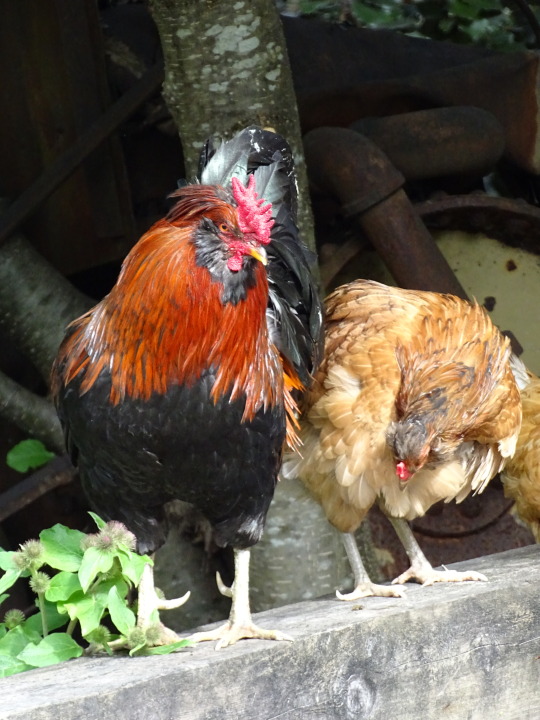
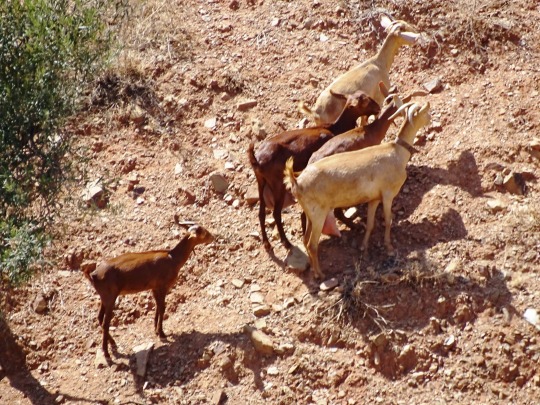

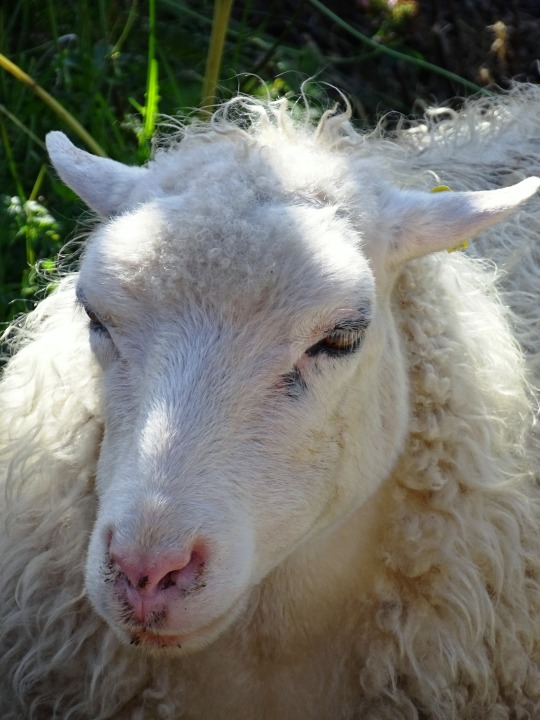
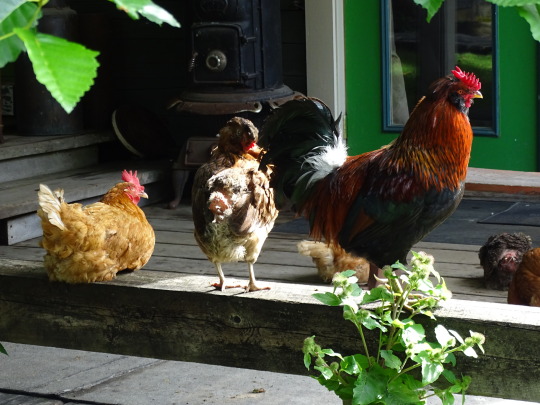



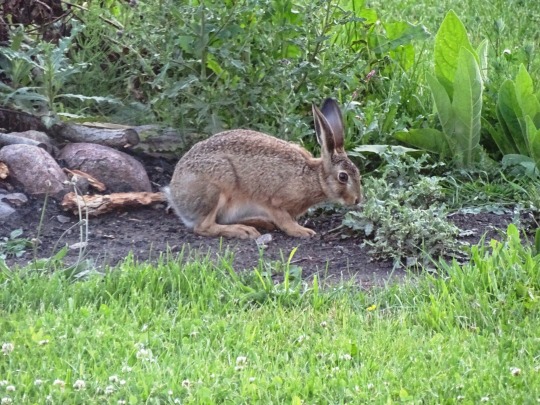
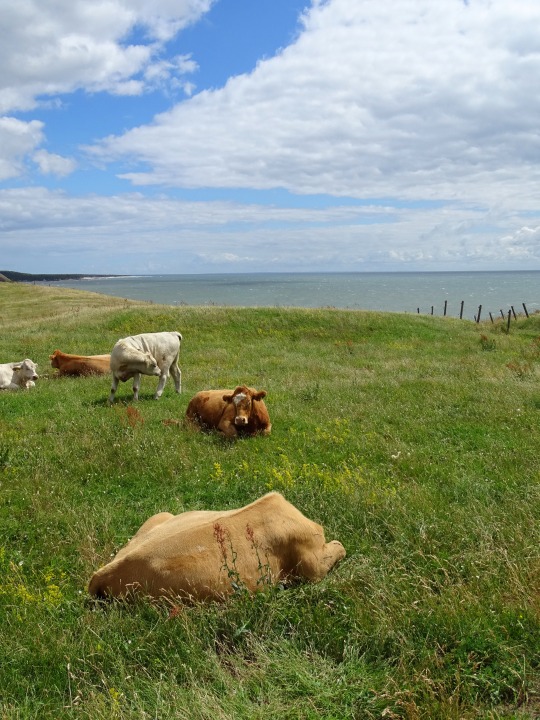
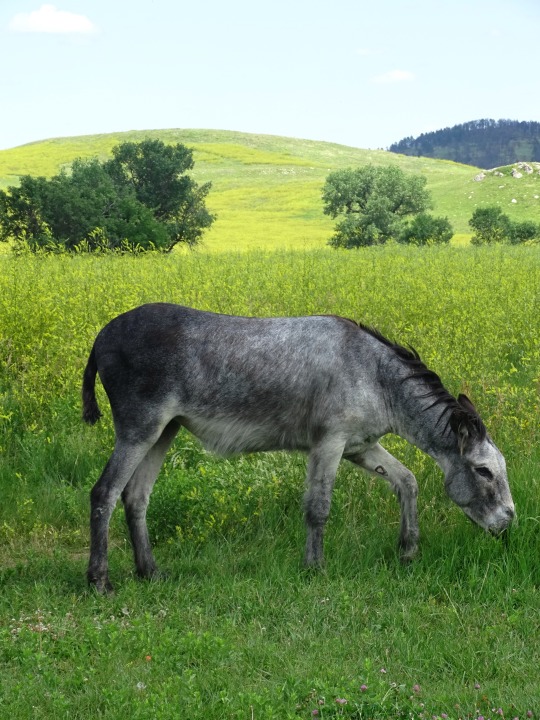
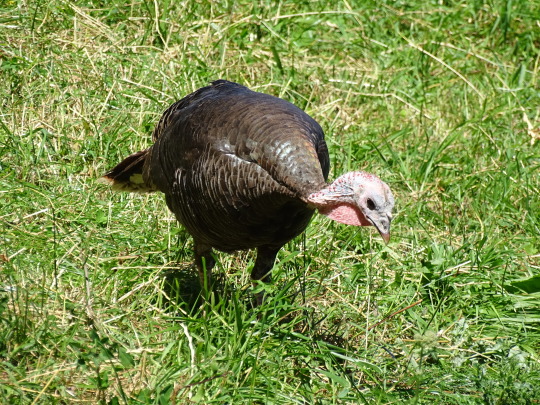

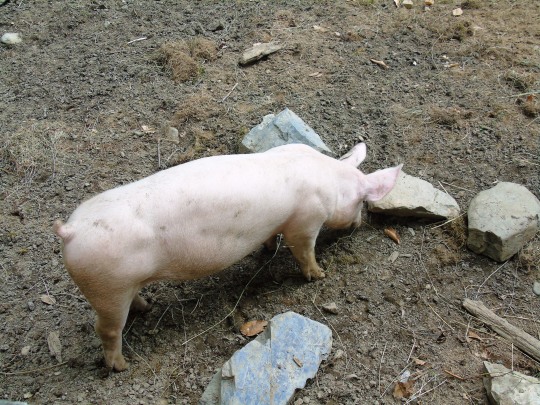
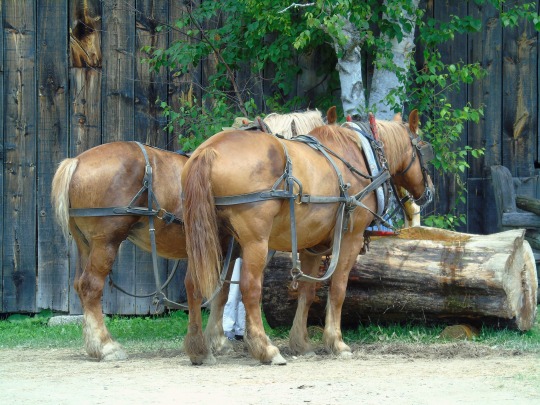


World Farm Animals Day
Created in memory of Gandhi, who advocated respecting all animals, National Farm Animal Day is about the crucial and often mistreated farm creatures.
Farm animals are delightfully cute, especially baby farm animals with their squeaks and squeals, running and playing. Even more than that, farm animals also play an important role in modern society. Take some time to appreciate them this World Farm Animals Day!
History of National World Farm Animals Day
Established in memory of Mahatma Gandhi, who believed in treating all living beings with respect, World Farm Animals Day was founded to highlight the poor conditions suffered by some farm animals, and promote awareness in the hope something may be done to improve the lives of these innocent creatures. The first World Farm Animals Day was celebrated in 1983 as part of an international movement for the rights of farm animals.
Sometimes also called the World Day for Farmed Animals (WDFA), this day aims to raise awareness for and commemorate the 65 billion land animals who are raised for food every year. Since most people believe that animals should not be harmed unnecessarily, this day seeks to bring together those who are passionate about farm animal welfare and working to make changes!
How to Celebrate World Farm Animals Day
Show some love and attention to these often overlooked creatures by celebrating World Farm Animals Day. Get involved with the day in a variety of creative ways, including some of these ideas:
Celebrate World Farm Animals Day with Children
Although World Farm Animals Day has an important, and somewhat sad, origin in the sense that it was created to raise awareness of suffering, it can be celebrated in different ways, particularly with children.
Taking children for a visit to a farm is a great way to teach them about farm animals, and it may also be a good chance to instill in them the message of treating animals with respect. Teachers might want to take an opportunity on World Farm Animals Day to create lessons around the different farm animals, how they contribute and why they are important in the world today. From preschoolers to older children, this day offers a perfect opportunity to grow a generation of responsible humans who treat all creatures well!
Change Some Eating Habits
World Farm Animals Day is actually a great day for a person to make a commitment to try to incorporate fewer animal products in their diet. Perhaps it’s not realistic to immediately become a vegan and cut out all animal products. However, it might be a good time to commit to taking one day a week for the family to prepare meals without meat. Or perhaps this is a good time to make the switch from dairy milk (which many humans really don’t process well anyway!) to drinking plant-based milk such as oat, soy, almond or another alternative.
In addition, taking care about where animal products are sourced from can make a huge difference. For instance, commit to purchasing cage-free eggs, farm raised chickens or responsibly sourced seafood.
Support an Animal Charity
Another great way to celebrate is by donating to an animal protection charity that works to promote the welfare of animals, including those on farms. Take a look at some of these non-profit organizations that are dedicated to animals, and perhaps look into making a financial gift or even volunteering throughout the year:
Farm Sanctuary. This charity offers many ways for folks to get involved, including becoming members of the Friends of Hilda Club, named after the first rescue animal to benefit from Farm Sanctuary.
Faunalytics. Don’t let saying the name be intimidating, because this organization works to collect and share data, research and knowledge that is vital in understanding how to better care for farm animals and limit industrial animal farming.
Human Farming Association. This campaign against factory farming aims to stand up to big business, speaking on behalf of the animals who cannot speak for themselves.
Source
#Stewart#World Farm Animals Day#WorldDayForFarmedAnimals#2 October#goat#sheep#Spain#Sweden#original photography#travel#vacation#flora#fauna#Tyresta National Park#River Västerdalälven#Ystad#cow#cattle#meadow#LUGA#Schweiz#Switzerland#donkey#begging burros#USA#Custer State Park#Kings Landing Historical Settlement#Canada#horse#pig
0 notes
Video
youtube
Faunalytics: Providing Research Essential to Effective Animal Advocacy
Faunalytics is a United States-based non-profit organization with a unique mission to empower animal advocates by providing them with access to research, data, and strategies – all at no cost. It also shares data with and gives assistance to vegan business owners to help them succeed. Faunalytics has a small staff, but its output of data has been nothing but extensive! In 2019 alone, Faunalytics’ website and social media channels reached around 1.6 million people.
Faunalytics’ efforts to help animals truly deserve recognition and support. Supreme Master Ching Hai: “Gratefully present Faunalytics with the Shining World Compassion Award, with a humble gift of US$10,000 to support its vital work to protect animals. May the Providence bless all involved abundantly.”
For more information about Faunalytics, please visit Faunalytics.org
For more amazing programming about "Good People, Good Work", please go to SupremeMasterTV.com
#SupremeMasterTV#AnimalAdvocacy#Research#Data#Strategy#nonprofitorganization#Veganism#VeganBusiness#Faunalytics
0 notes
Text

Ppl fucking loooooove to throw around “ok yt” stuff about vegetarianism/veganism which made me curious if there was any actual empirical data on racial demographics of vegetarianism/veganism. The best I could find (thx to @aksemmi ) was this Gallup poll, which suggests whites are three times less likely to be vegan than nonwhites. (Reporting from the bbc and elsewhere cited this pew study for similar claims but I could not find the data anywhere in the report itself). This faunalytics report also seems to suggest that as of 2007-2010 whites were underrepresented and “Other”s (neither white nor black nor Hispanic) were greatly overrepresented, though it sadly gave no finer grained breakdown
Anyway, I could find nothing to empirically support the common stereotype of vegans and vegetarians as greatly disproportionately white. Which imo ofc doesn’t really bear much on the ethics of vegetarianism itself but does suggest smth important about the reliability and integrity of anti-veg rhetoric
241 notes
·
View notes
Text
Let’s not be scared of veganism – it has more to offer than you think.
‘Vegans only eat seeds and nuts’, that’s something I’ve heard, read, and thought a lot. Is it true? Not quite.
Resolute meat-eaters seem to think vegans are aggressive grass-eating people who will guilt trip them into giving up meat with videos of cruel animal slaughter. Surprise - they’re not. But this stigma surrounding veganism is very real. It has made us scared to even explore this new genre of cuisine.
We understand today how the way we consume has damaged our planet and why it needs to change, one way or another. This is when, generally, meat-eaters (including me) jump to the question: what do we eat if we’re skipping meat?
There is a happy middle. What if we could fully appreciate all that it has to offer before assuming the worst? Sure, there’s no meat, but there is so much more to good, enjoyable food than a rib steak.
I recently discovered Gaz Oakley, a vegan chef, and his Youtube channel Avant-Garde Vegan. Set in a gorgeous kitchen, his videos are edited superbly. His sweet, engaging personality makes his content all the more appealing.
Eating less meat is one of my goals looking into veganism, but so is discovering new flavours. I come from a family where if I made enough of a fuss, I didn’t have to eat the gross mushrooms on the plate. I got away with eating safe, comfortable food – not anymore.
We could replace meat with new, exciting (scary, too) flavours. The other day I made Gaz’s beetroot burger: chickpeas, butter beans, beetroot, sautéd onions, and balsamic vinegar. I had never done something so out of my culinary comfort zone. It was terrifying. Today? His breakfast burrito with mushrooms, peppers, and spring onions. Ingredients I would not have touched last year. But, well, I loved it.
Not too long ago, I thought I would have to abandon my favourite foods to go vegan. Switch from gratin dauphinois and cassoulet to kale and quinoa – ugh. Turns out, that’s not true. I recently watched a Gaz pasta dish recipe: sundried tomato and broccoli pasta. (https://www.youtube.com/watch?v=AmXmzYwBVeM). Sounds pretty normal, right? And it’s a first step towards eating better, and healthier.
You can start with dishes you know, dishes you love. Veganism and all its new tastes can be daunting, but it doesn’t have to be.
Stay tuned for more on my journey to veganism; namely, me being scared of trying cooked carrots.
Sources • Why vegans and meat-eaters can't stop attacking each other – Insider (https://www.insider.com/why-do-angry-vegans-meat-eaters-fight-so-much-2020-2) • Vegan Stigma: A Barrier To Dietary Change – Faunalytics (https://faunalytics.org/vegan-stigma-a-barrier-to-dietary-change/) • Avant-Garde Vegan – Gaz Oakley (https://www.avantgardevegan.com/)
Further resources on going Vegan • How to go Vegan – the Vegan Society (https://www.vegansociety.com/go-vegan/how-go-vegan) • 10 Must-Read Tips If You're Thinking About Going Vegan – Self (https://www.self.com/story/must-read-tips-going-vegan)
7 notes
·
View notes
